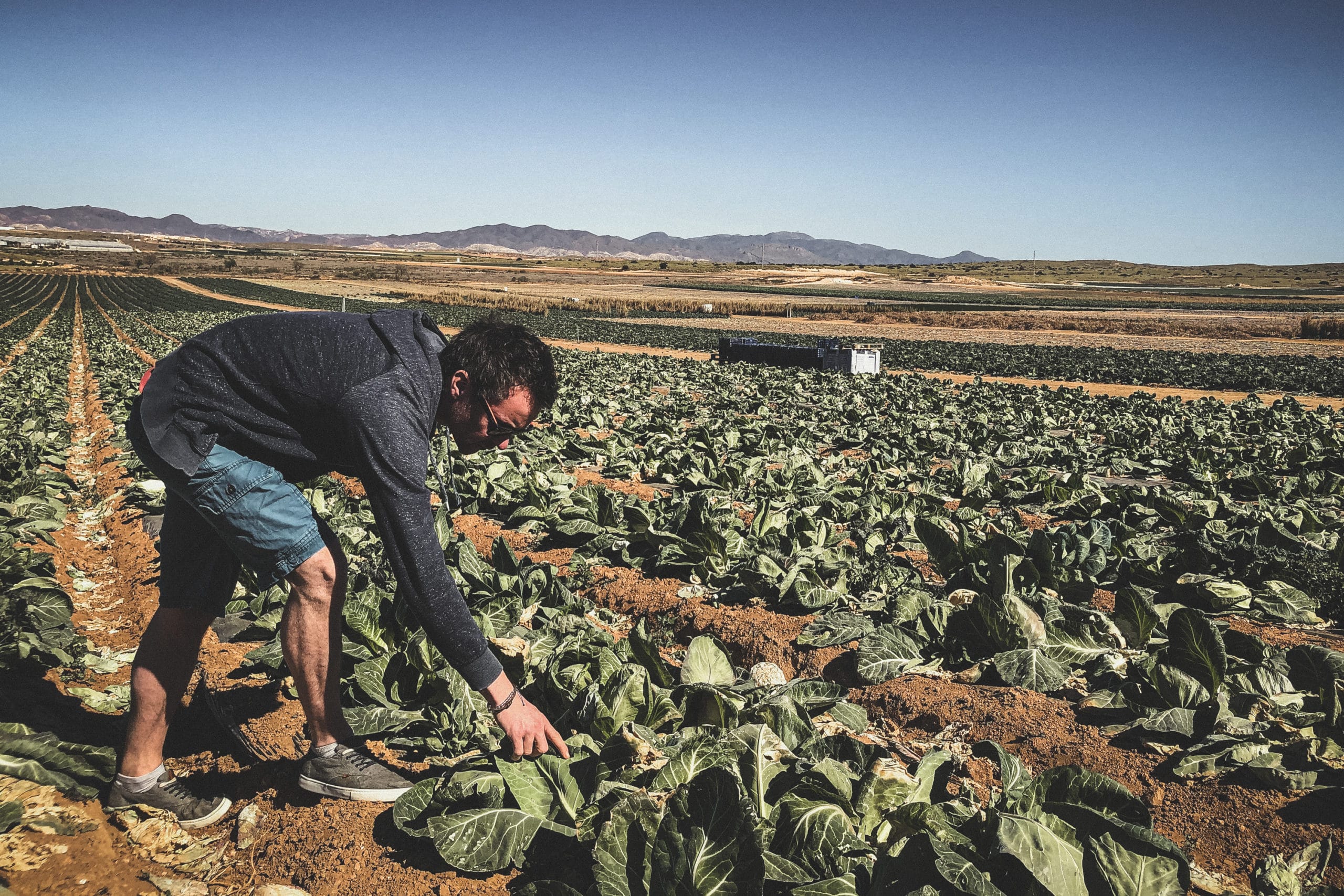I have been known to moan about the challenges of growing vegetables in Devon; the rain, the grey skies, the small, steep fields and shallow soils. But three weeks of visiting our suppliers in France and Spain (combined with some holiday) have made me appreciate our giving and forgiving soil, and the gentle, stable climate we enjoy by virtue of being surrounded by the sea – it’s always wet, and the temperature is relatively constant.
Much of southern and eastern Spain only receives around, or marginally above, the 250mm of rainfall per year that would classify it as desert. Just as significantly, what little rain there is tends to be intense and unpredictable, resulting in run-off and soil loss (when excess water flows off saturated fields, carrying soil with it). We should now be selling doughnut peaches from Genaro’s 60-acre farm south of Valencia, but 90 per cent of the crop was lost after torrential rain delivered 700mm – more than twice the annual average – in just two months.
North of him, an olive farmer suffered an 80 per cent loss when the resulting humidity led to fungal disease. The woe continues with José Miguel near Zaragoza; after 20 years without frosts, he has now had flower-destroying frosts for four springs in a row, losing most of his doughnut peach crop. Amazingly, José was still upbeat; his young apricots, nectarines, apples, figs, and round peaches flowered later, escaping the freeze. These fruits all look fantastic, and will be in your boxes through July and August.
Mostly, the calcareous soil in these areas is thin and poor. I spent a good deal of my youth helping my father clear slate and granite stones from Riverford’s fields, but that was nothing compared to the fields atop the cliffs south of Valencia, cleared over centuries to grow vines, olives, carob and almonds. The soil was so meagre that the mounds of cleared limestone and flint covered more area than the fertile soil the farmers managed to expose; most of the fields are just 3m wide.
Now, global markets and mechanisation have driven production to larger inland fields, drip-irrigated with 200m-deep bore holes and harvested by machine. Climbing into the coastal hills is beautiful; most of those small fields are now abandoned to wild rosemary, thyme, lavender, fennel, holm oaks and pines. Through them wind paths made by wild boars – and the occasional gringo on his travels, heading for a swim.














0 Comments